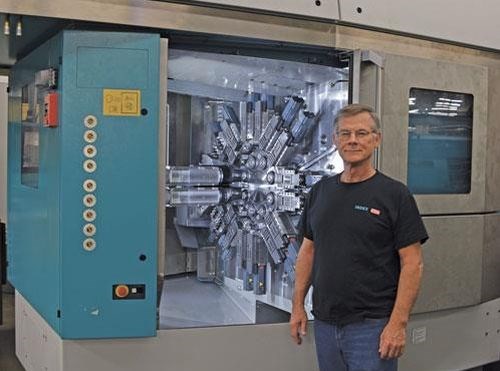Taking the Complex Jobs
In an effort to hold onto domestic work, this shop invested in multispindle technology that provides a profitable way to handle complex parts. Get the whole story!
#workforcedevelopment

Change is a part of life. In our industry, one of those significant and unfortunate changes has been the offshoring of a lot of manufacturing work, along with the reshoring efforts that now are growing ever stronger to bring that work back.
One shop we’ve covered in the past has found that the best way for it to reclaim the work has been by tacking the more complex parts that create too much of a challenge for others. Of course the shop needs to remain profitable in the process.
In “Making Complex Parts Profitably,” we take a close look at Alpha Grainger (Franklin, Massachusetts). This company identified CNC multispindle machines as a way to win domestic jobs. The machines are able to complete a part with many small details and features within a cycle time that is 10 percent that of a single-spindle lathe. The shop has four 8-spindle Index machines to handle its complex parts, both bar-fed and chucked, for the automotive, defense, aerospace, mechanical and medical industries.
It’s worth a look. The company has found the investment in the technology to be a wise one.
RELATED CONTENT
-
Determine Passivation of Stainless
Properly cleaned stainless steel is naturally protected from corrosion by a thin, passive film. But this passive layer can be removed or scratched. A passivation meter measures the surface potential under controlled conditions.
-
4 Tips for Building an Effective Machining Apprenticeship Program
Developing the right apprenticeship program can be one of the best things a machine shop can do for itself and for the future of manufacturing. Here are key “do’s” and “don’ts” to follow.
-
Winning New Jobs With Online Bidding
The digital revolution is hitting the business of the multiple-spindle automatic machining--in two distinct forms, no less. Twenty-five years after the first wave of digitization in manufacturing (numerical control) its linear descendant, computer numerical control or CNC, is changing the way screw machine shops do business.



